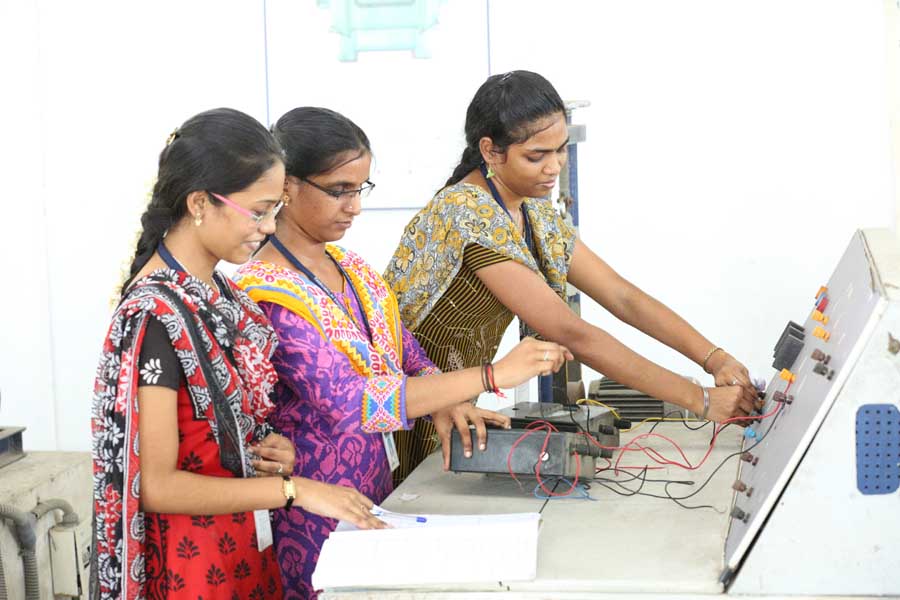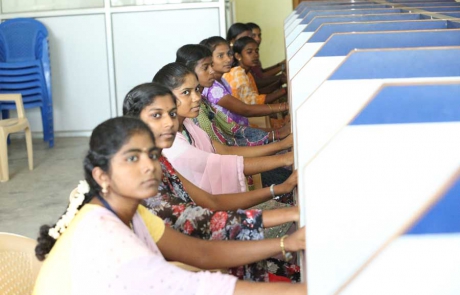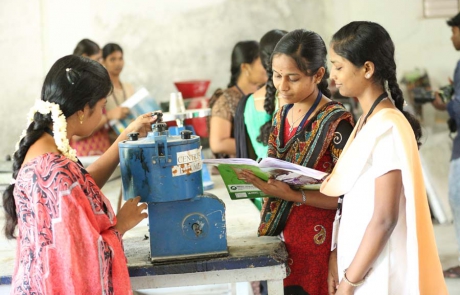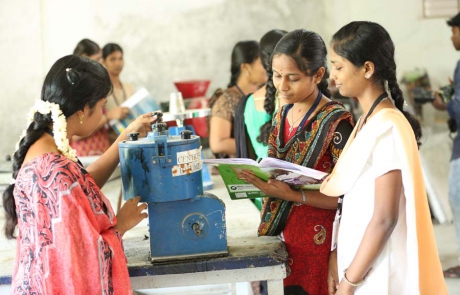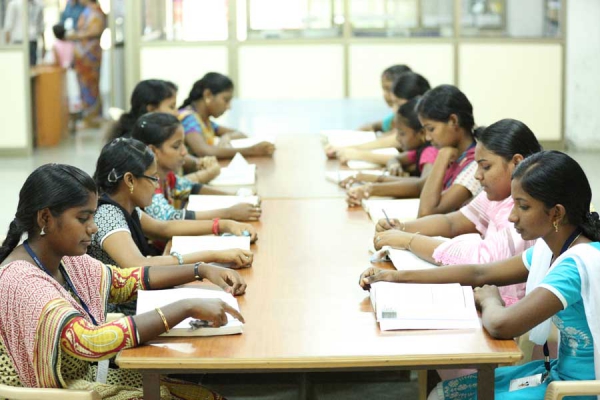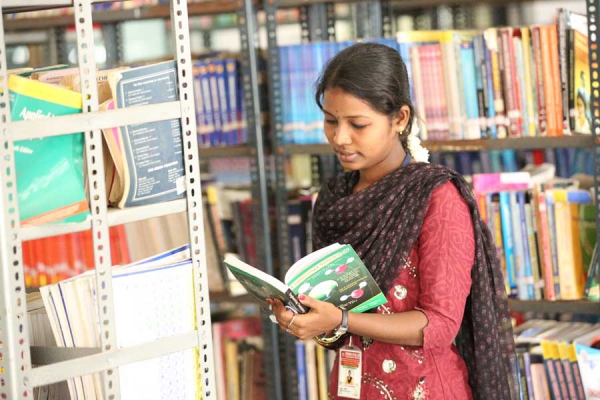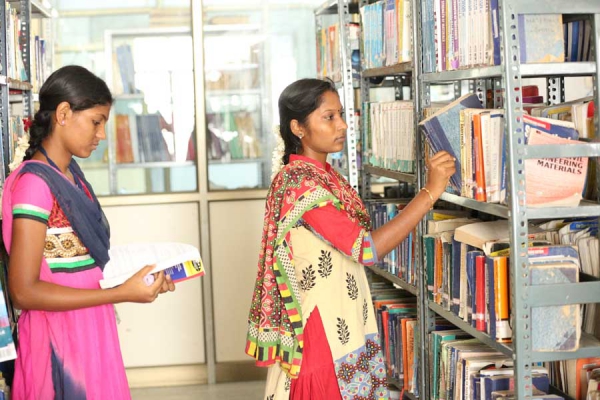- Course Overview
Duration
4 Years (8 Semesters)
Accreditation
AICTE Approved
Intake
60 Students
- Introduction – Mechanical Engineering Department
The Mechanical Engineering Department at Thirumalai Engineering College (TEC) is a key and growing part of the institution. We offer a well-rounded Undergraduate Program aligned with Anna University’s curriculum, combining both classroom learning and hands-on laboratory experience. Our department is fully committed to the academic success, overall development, and career growth of every student.
All classrooms are equipped with SMART Boards, enabling interactive and engaging learning sessions. These smart classrooms encourage better communication between faculty and students, making learning more effective.
Our labs are well-equipped, and students gain real-world experience in areas like experiment design, measurement, and data analysis. We also provide practical design training through our advanced CAD/CAM laboratory, helping students build strong technical and design skills.
The department and the entire college are focused on delivering quality education while also supporting students’ personal development and well-being. We welcome students to be part of this dynamic learning environment and invite you to reach out with questions or visit us to learn more about the opportunities we offer.
- Department Activities
PROGRAMME EDUCATIONAL OBJECTIVES
- 1.Have a high level of technical competency combined with research and problem-solving skills to generate innovative solutions in mechanical engineering or related areas.
- 2.Be able to communicate effectively to various stakeholders and practice their profession with high regard to societal needs, diversity, constraints in the professional workplace, and ethical responsibilities.
- 3.Continuously updating themselves in areas and technologies that are relevant to their career, participate in personal development, and increasing their understanding of matters that are current and important to society in a national and international context.
- 4.Solve complex technical problems and /or design systems that are useful to society by applying the fundamental scientific principles that underpin the mechanical engineering profession.
- 5.Graduates are able to undertake lifelong learning and adapt to the changing environment.
PROGRAME OUTCOMES (POs)
- 1.Engineering Knowledge: Apply math, science, and engineering basics to solve complex problems.
- 2.Problem Analysis: Identify, analyze, and interpret complex problems using research and engineering principles.
- 3.Design & Development: Design effective solutions and systems with consideration for health, safety, and the environment.
- 4.Investigation Skills: Use experiments, data analysis, and research methods to draw valid conclusions.
- 5.Modern Tool Usage: Apply modern tools, software, and technology to engineering tasks and problem-solving.
- 6.Engineer & Society: Assess social, health, legal, and cultural impacts relevant to engineering practices.
- 7.Environment & Sustainability: Understand the environmental impact of engineering and support sustainable development.
- 8.Ethics: Follow professional ethics, responsibilities, and standards in engineering work.
- 9.Individual & Teamwork: Work effectively as an individual and as a team member or leader in diverse settings.
- 10.Communication: Communicate clearly with teams and society through reports, presentations, and instructions.
- 11.Project Management & Finance: Apply engineering and management principles to lead and manage projects.
- 12.Life-long Learning: Stay updated and continue learning independently in a fast-changing technological world.
PROGRAM SPECIFIC OUTCOMES (PSOs)
- 1.Have a high level of technical competency combined with research and problem-solving skills to generate innovative solutions in mechanical engineering or related areas.
- 2.Be able to communicate effectively to various stakeholders and practice their profession with high regard to societal needs, diversity, constraints in the professional workplace, and ethical responsibilities.
- 3.Continuously updating themselves in areas and technologies that are relevant to their career, participate in personal development, and increasing their understanding of matters that are current and important to society in a national and international context.
- 4.Solve complex technical problems and /or design systems that are useful to society by applying the fundamental scientific principles that underpin the mechanical engineering profession.
- 5.Graduates are able to undertake lifelong learning and adapt to the changing environment.
- Career Opportunities
Site Engineer
Supervises construction work at the site and ensures it follows the plan.
Structural Engineer
Designs buildings, bridges, and structures to be strong and safe.
Design Engineer
Creates detailed construction plans using software like AutoCAD.
Project Manager
Manages construction projects, budget, and team coordination.



